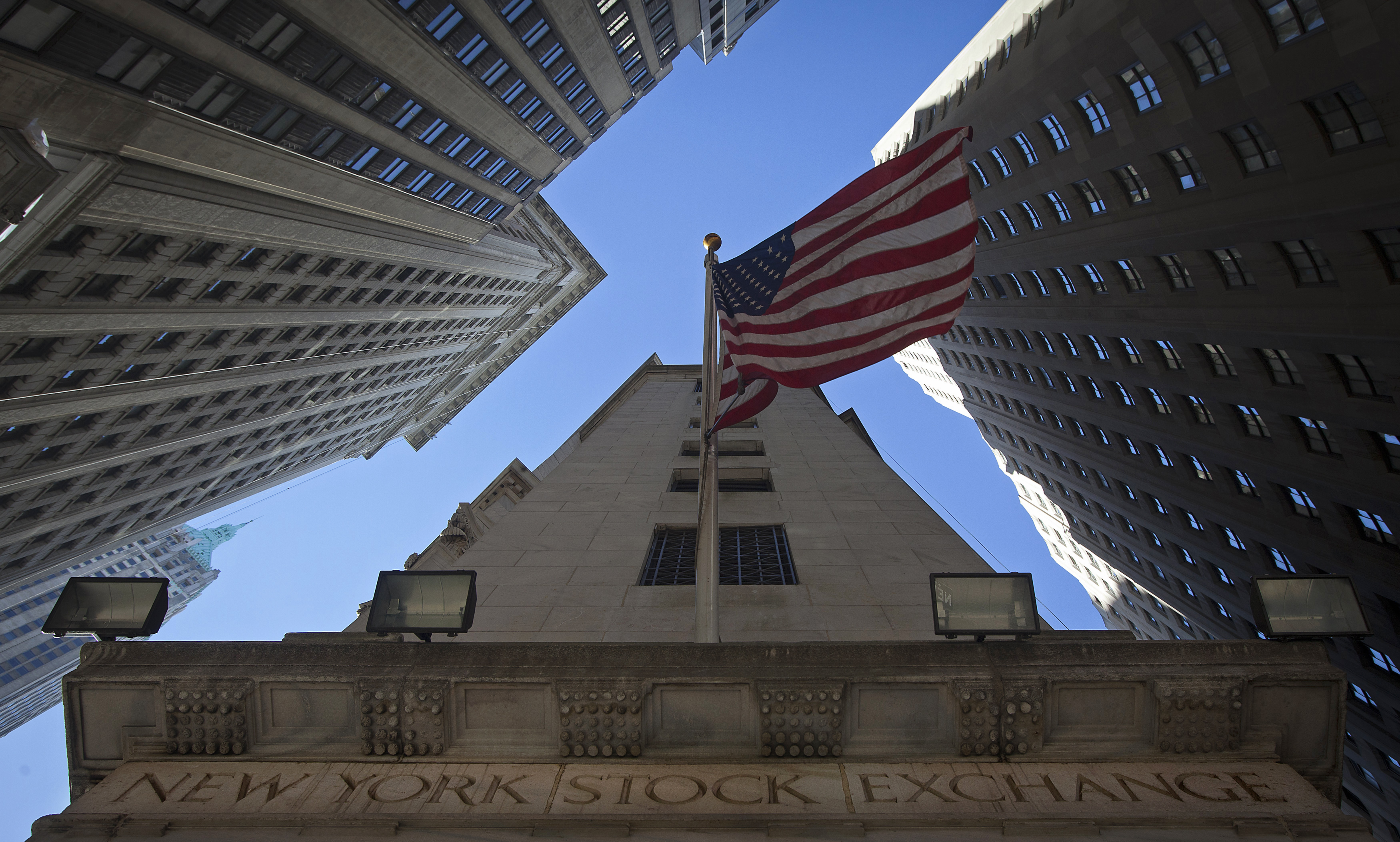What the IPO slump means for America's entrepreneurs
Fewer companies have been going public in recent years. Is America running out of innovative ideas?


A free daily email with the biggest news stories of the day – and the best features from TheWeek.com
You are now subscribed
Your newsletter sign-up was successful
The number of companies going public has been in a steady downward spiral. Last year, Fortune reported that the number of companies making the move had declined by a whopping 65 percent since 2014, while CNBC declared that "there are fewer listed companies in the United States today than there were in 1976." Sounds dire. But does this mean business growth in America overall is circling the drain? Are America's entrepreneurs running out of business ideas? Are small companies struggling to find customers?
Take a deep breath. The initial public offering (IPO) slump isn't necessarily a harbinger of bad news — for the economy or for business owners.
"From strictly a business standpoint, it's a great time to be in business right now," says former investment banker Carol Roth, creator of the Future File legacy planning system. "The world economy is doing quite well. It's not just America having some decent growth."
The Week
Escape your echo chamber. Get the facts behind the news, plus analysis from multiple perspectives.

Sign up for The Week's Free Newsletters
From our morning news briefing to a weekly Good News Newsletter, get the best of The Week delivered directly to your inbox.
From our morning news briefing to a weekly Good News Newsletter, get the best of The Week delivered directly to your inbox.
So doesn't this mean there should be a boomlet instead of a dearth in IPOs?
First of all, let's back up for a minute and talk about what an IPO is — and is not. If your company is public, as opposed to private, it means us little people in the public can buy its stock and become shareholders. An IPO is the first offering of stocks, an "event that opens up a company to allow anyone to invest," explains CNBC's Leslie Picker, who reports on hedge funds, private equity, and asset management. Usually, companies go public when they think there will be a great enough demand for their product that their shares will grow in value, increasing the company's overall worth.
So what's behind the current downward trend in IPOs? It's not a lack of groundbreaking ideas from America's new class of entrepreneurs. Young people have ideas. It's money they're lacking. "Millennials have so much student debts and are taking longer to do things, like buying houses," says Roth. "Of course, these people won't be starting businesses." The gig economy provides an enticing (and safer) alternative to all-out entrepreneurship. It's like "having your own business but also working for someone else," Roth explains. "Someone who might have had a dog-walking business is now driving for Uber."
But another factor has to do with the types of emerging companies seeking investors. A decade ago, tech ruled. Service-based industries, from hotels to car services, appeared on the scene clamoring for potential investor interest. More recently, though, industries like biotech, health care, and energy have seen a boom. For these companies, an IPO may not be the main goal.
A free daily email with the biggest news stories of the day – and the best features from TheWeek.com
"The IPO market has traditionally been a way of raising funds," says Scott Latham, an associate professor at UMass Lowell specializing in strategic planning and business startup development. "The number one thing an investor wants in any IPO is revenue certainty. They want to look into the future and know a company will be healthy." That might be easy for a tech company that has a measurable trajectory, but less so for newer startups in pharmaceuticals or biotech.
"These are companies that have ideas and they may have prototypes and they have to go through the regulatory process," Latham says. Indeed, if a new business in the health-care industry comes up with a drug or gadget aimed at making people healthier, they often can't just put it out for everyone to try and see if it takes off. They have to get it approved, and that can take a while. "And so, these IPOs in these amazing companies might become stalled. It's different than it was for an IT company," Latham says.
The U.S. Securities and Exchange Commission (SEC) knows this is a problem. "The SEC is attempting to make the process easier," explains Joel Frank, who represents both public and private companies as a partner at Wilk Auslander. "The SEC has said that it will continue to work to create a regulatory environment that supports efforts to become a public company. Regulators recognize that they need to focus on ways to make public company status more attractive while continuing to protect investors."
What should we expect for the future of IPOs? Believe it or not, 2018 might just be the year things bounce back in a big way. "Forecasting is always difficult," says Frank. "However, industry sources expect domestic IPOs to reach $78 billion in 2018, an all-time high."
But the reality is that not all companies are meant to go public, and the majority don't. "In terms of raw numbers of small businesses and entrepreneurial ventures in the U.S., the large majority of them never have gone public and never will," says Roth.
Picker believes ultimately it's the journey to going public that will change. "The future of IPOs will encompass various experiments, with companies seeking to disrupt the traditional process for going public." Indeed, companies are already approaching the IPO in new ways. Spotify, for example, is skipping an IPO all together.
Since the end goal is profit, Picker explained that few companies veer from traditional funding methods for fear of botching the offering. But over the last year, "companies have been looking for different ways of tapping the public markets that could be more cost efficient while also contributing to their future success." And that might just herald the new era of the IPO.
Rachel Weingarten is a marketing strategist, trend analyst, and prolific writer who covers business, style, and the business of style. She's the award-winning author of three non-fiction books, a former celebrity makeup artist, a sought-after speaker, and sometimes professor. Rachel created and acted as on on-air talent for a show about female entrepreneurs on CNN Money and has appeared as an expert on MSNBC, the Today Show, and Good Morning America, among others. She has written extensively or been quoted in the AP, ABC News, Parade, The New York Times, The Guardian, The Wall Street Journal, and many more. Rachel recently launched The Evolved Foodie.
-
 ‘Zero trimester’ influencers believe a healthy pregnancy is a choice
‘Zero trimester’ influencers believe a healthy pregnancy is a choiceThe Explainer Is prepping during the preconception period the answer for hopeful couples?
-
 AI surgical tools might be injuring patients
AI surgical tools might be injuring patientsUnder the Radar More than 1,300 AI-assisted medical devices have FDA approval
-
 9 products to jazz up your letters and cards
9 products to jazz up your letters and cardsThe Week Recommends Get the write stuff
